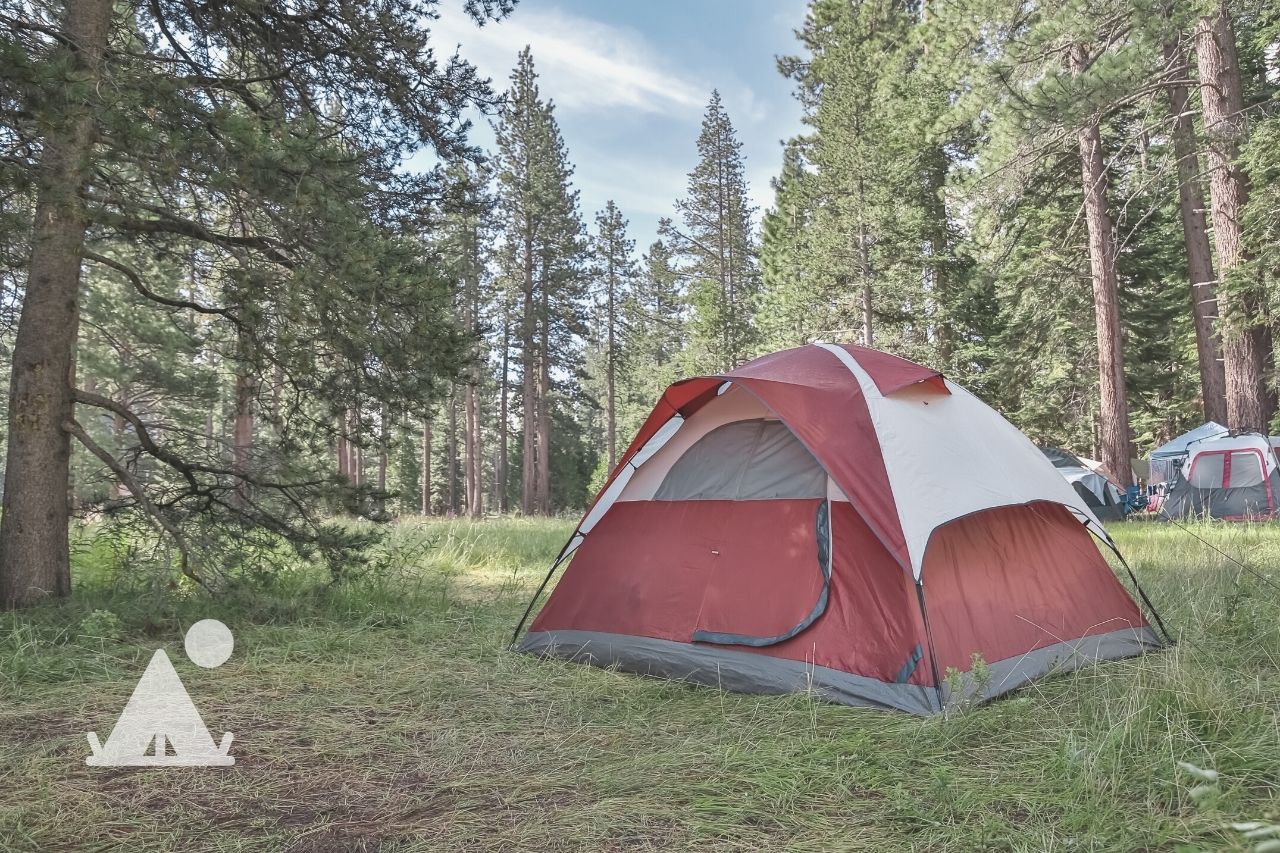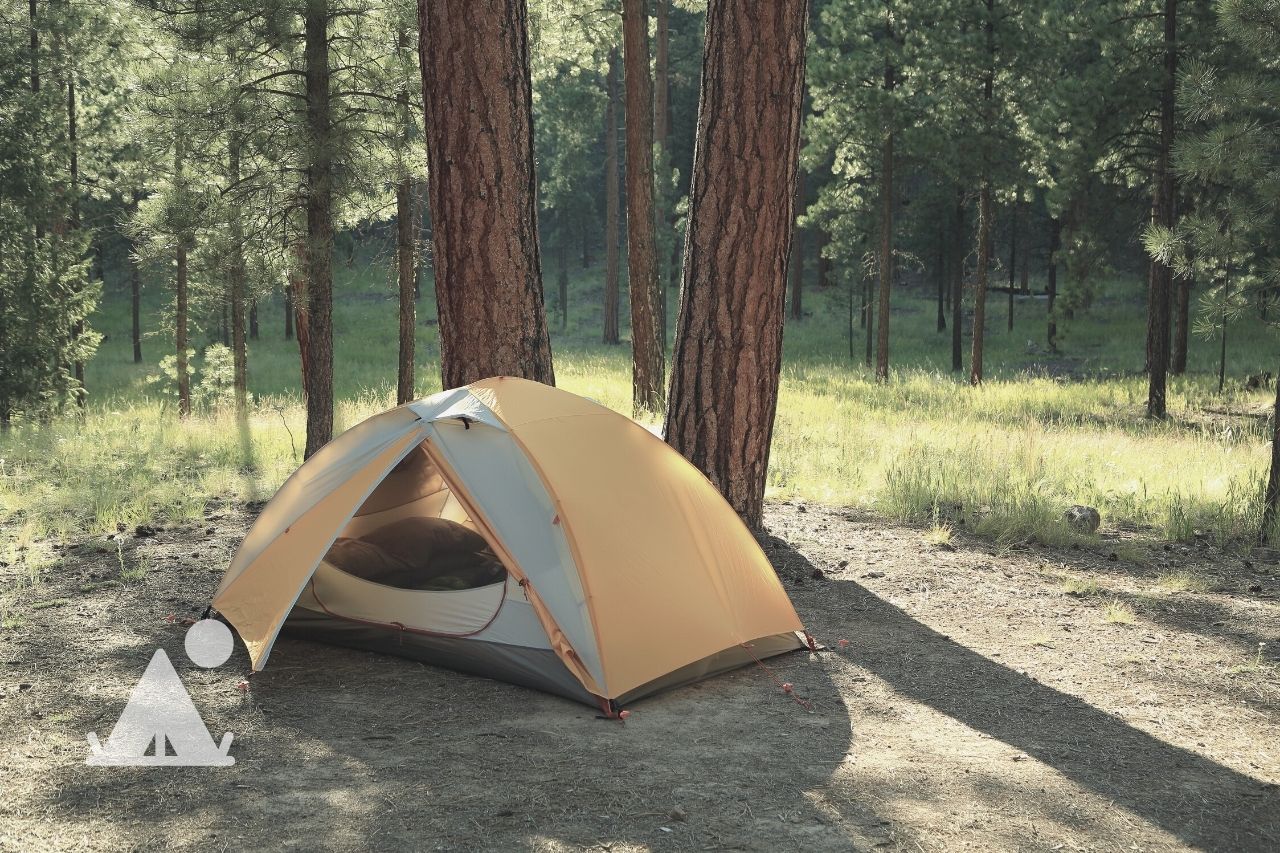One of the easiest ways to damage your tent and reduce its longevity is storing it when it’s wet and dirty after a camping trip. A quick hose down or wipe down is not enough. You need to take time to clean off dirt, sap, mud, bird dropping and any other grime on the tent. Here’s how to clean your tent after camping.
Can You Clean A Tent In A Washing Machine?

As tough as your tent is, it cannot withstand the rough agitation and spinning of a washing machine. A top-loading washing machine is especially bad, but a front loader is not safe either.
The best way to clean your tent is by hand washing it.
A washing machine can cause the nylon fabric to stretch, which weakens your tent. It can also rip the mesh parts of the tent, cause seams to tear and damage the waterproof coating on the fabric.
A dryer is also a big no-no. The heat could cause permanent damage to the tent.
Once you hand wash the tent, set it up in a shaded area and let it air dry.
How To Hand Wash A Camping Tent?
What you need
- Gentle non-fragrant dish soap for spot cleaning.
- Rubbing alcohol to remove tree sap.
- Cold or lukewarm water.
- A sponge or soft cloth.
- A soft bristled brush.
- Detergent for outdoor fabrics (Tech Wash is the most popular brand).
- A large tub or basin.
- A large surface to lay out the tent.
How To Clean
- Spread out the tent on a large surface like a table. This makes it easy to see dirty, stained, or muddy areas that need spot cleaning.
- Check for any rips, tears, or any kind of damage on the tent and repair it immediately before it gets worse.
- If the tent is dusty, use a soft bristled brush to remove most of the dust and dried mud.
- For extra-dirty spots, squirt a bit of dish soap on them then use a wet sponge or cloth to spot-clean those areas. This should be enough to clean spots with mud, dirt, or grime.
- If you have bird droppings or tree sap on the tent, switch to rubbing alcohol. Put a bit of alcohol on a sponge then rub the affected area.
- Repeat the above steps for other major components of your tent set up such as the rainfly or a ground tarp.
- Next, fill a large basin or a bathtub with cold or lukewarm water.
- Add detergent formulated specifically for outdoor fabrics. We recommend Tech Wash. It’s especially great for waterproof fabrics like camping tents. Do not use regular laundry detergent, as it is too harsh and cans trip away the waterproof layer.
- Check the recommended dosage of whichever detergent you are using.
- Flip the tent inside out and soak it in the water for a few hours (or the amount of time recommended on the label) then gently hand wash it.
- Rinse the tent.
- Pitch the tent somewhere shaded and leave the flap open to allow the inside to dry. If it’s dusty, open the flap just a little to keep the inside of the tent clean. You can also hang the tent on a clothesline.
- Because tents are waterproof, it can take quite some time for it to dry. Depending on the weather, it may take a few hours to a few days to fully dry.
- If necessary, re-apply the waterproof coating then store the tent.
Here’s a short video from REI summarizing the cleaning process.
How To Dry A Tent Indoors?
If you live in an apartment, your only option is drying the tent indoors unless you have a sizable balcony.
It’s also the best option during winter and when it’s raining.
It’ll take longer to dry a tent indoors, but it’ll dry eventually. The most important thing is to be patient.
Do not use heat from a heater or blow dryer to speed up drying. The heat can damage the fabric.
Simply find a way to hang the tent in one of the rooms. You can tie a paracord or clothesline between two areas and hang the tent on it.
If that’s not possible, hang it over an open door, your shower door, or the shower curtain rod.
To speed up drying and prevent excessive humidity inside your home, keep the windows open. This provides air flow that carries moisture outside.
You can also turn on a fan or two to add more airflow to the room.
How To Clean A Moldy or Smelly Tent?
If you had no choice but to pack the tent while it was still wet, it will develop musty smells by the time you get home.
Leave it packed for too long and it can develop mold.
To get rid of mold, mildew, and odors from a tent, you’ll need an enzyme cleaner such as Mirazyme or GEAR AID Revivex Odor Eliminator.
Follow the instructions on the label to clean and deodorize your tent.
After cleaning, make sure the tent is completely dry before storing it to ensure mold and mildew doesn’t grow on it again.
If your tent is stinky but has no dirt, mold or mildew, you can simply spray it with a mixture of vinegar and water (1:1 ratio).
Spread the tent on a surface or hang it on a line, then spray it with the vinegar solution and leave it to dry.
How To Keep Your Tent Clean When Camping?

Keeping your tent as clean as possible when camping reduces the risk of damage to it and makes it easier to clean when you get home.
Here are some tips on how to keep your tent from getting too dirty when outdoors.
- Choose the right place to pitch the tent. Avoid locations that are too dusty or mudy and be wary of pitching under a tree full of bird nests.
- Use a footprint or ground tarp to protect the tent floor from damage and dirt.
- Keep dirty shoes, clothes, and gear outside or in the vestibule. If you have to bring anything dirty into the tent, clean it first then put it in a bag.
- If you’ve been hiking, remove your shoes and clean your feet before getting into the tent. Some camping facilities have running water. You can also set up a basin of water right outside the tent.
- Before packing the tent in the morning, air it out on the grass or by hanging it on a branch. Even an hour or two of airing will dry most of the moisture caused by rain, dew, or condensation. This keeps the tent from smelling musty or developing mold.
- Spot clean mud and dirt off the tent before packing. Use a sponge or soft cloth and clean water. It’ll keep dirt from setting into the fabric, making it harder to clean off. Make sure you dry the tent before packing.
- If you are camping for more than a day, clean the tent daily. Carry a soft broom and dustpan to quickly clean dust and debris off the tent floor.
- Do not let pets inside the tent while they are dirty or wet. If you go camping with your dog, carry a towel to dry and clean him before he gets into the tent.
Can I Get My Tent Professionally Cleaned?
Dry cleaning is not safe for tents, so don’t take yours to the dry cleaner’s. But there are companies that offer professional tent cleaning, waterproofing and repair services.
Search on Google or a services listing website whether there’s a tent cleaning service near you. Most services will come to your home to do the work there.
Professional tent cleaning services usually make sense for large camping tents that can be difficult to clean and dry at home.
If you have a 1-4 person tent, you can easily clean it in a bathtub and hang it to dry inside or outside.